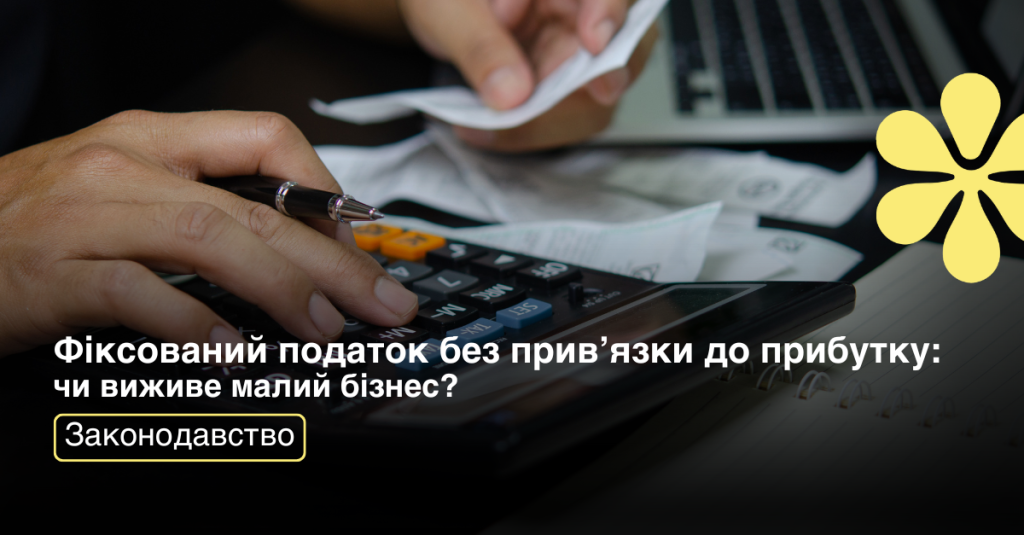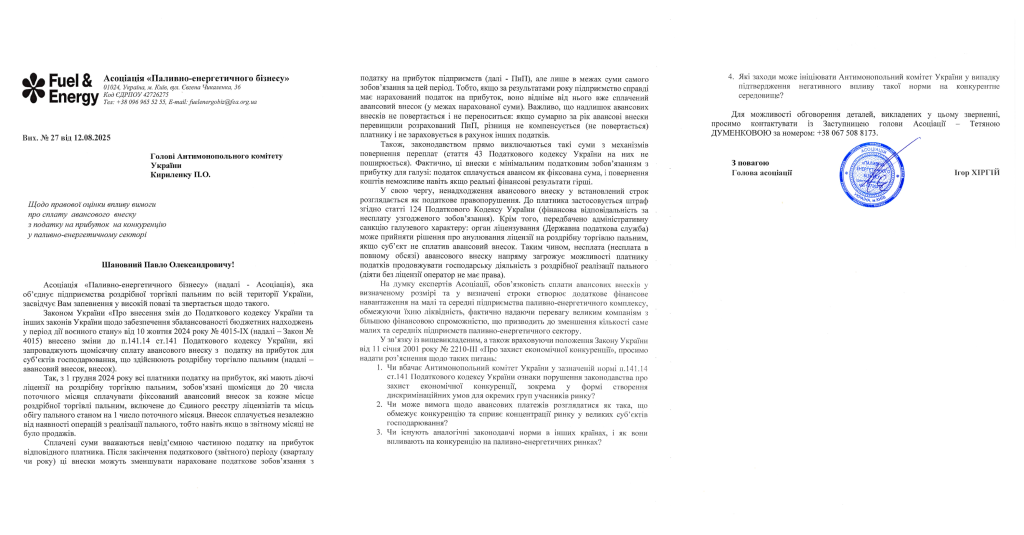The Fuel & Energy Business Association, which unites fuel retail enterprises across Ukraine, has officially appealed to the Antimonopoly Committee of Ukraine (AMCU) requesting a legal assessment of a new tax provision introduced by the Law of Ukraine No. 4015-IX of October 10, 2024.
What Changed in the Tax Code
The law amends paragraph 141.14 of Article 141 of the Tax Code of Ukraine.
Starting December 1, 2024, all corporate income taxpayers holding valid licenses for retail fuel sales must, by the 20th day of each month, pay a fixed advance payment of corporate income tax for each retail fuel sales location listed in the Unified Register of Licensees as of the 1st day of the current month.

Key Issues with the Provision
- The payment must be made even if there were no sales in the reporting month.
- Paid amounts are non-refundable and cannot be credited toward other taxes.
- If the annual corporate income tax amount is less than the total amount of advances paid, the difference is not reimbursed to the taxpayer.
- These advances are not subject to the overpayment refund mechanisms provided by Article 43 of the Tax Code.
- Failure to pay in full and on time is considered a tax offense and may lead not only to fines but also to the revocation of the retail fuel sales license.
Why This Threatens Competition
In effect, this establishes a minimum tax liability for the sector that does not take into account the actual financial performance of businesses. This requirement places additional financial pressure on small and medium-sized enterprises with limited liquidity reserves, while strengthening the position of large chains with greater financial stability.
The likely consequence is a reduction in the number of independent operators and increased market concentration in the hands of a few large companies.
Questions to the AMCU
The Fuel & Energy Business Association asks the Antimonopoly Committee to address the following key questions:
- Does this provision create discriminatory conditions for certain groups of market participants?
- Does it restrict competition and promote market concentration among large players?
- Are there similar provisions in other countries, and what has been their impact on competition?
- What measures can the Committee take if the negative impact on the competitive environment is confirmed?
We firmly believe that Ukraine’s fuel market should operate on the principles of equal opportunity for all participants, and that tax changes should support healthy competition, not narrow it.


